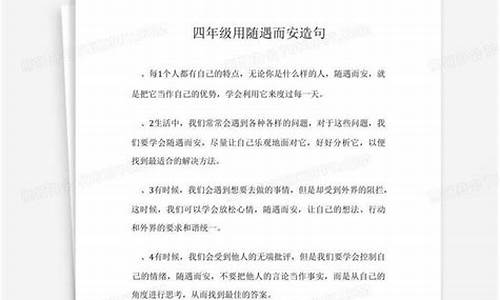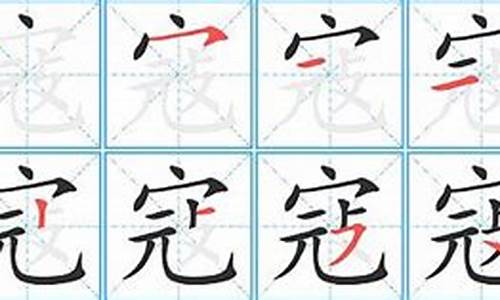您现在的位置是: 首页 > 成语谚语 成语谚语
bureaucrat_virtuous
tamoadmin 2024-10-19 人已围观
简介1.什么叫官僚资本主义2.官僚英语怎么说3.英语动词否定前缀4.关于chinese中ese的说法后缀1. 名词后缀(1) 具有某种职业或动作的人1)-an, -ain, 表示"……地方的人,精通……的人”American, historian,2)-al, 表示"具有……职务的人" principal,3)-ant,-ent, 表示"……者” merchant, agent, servant, s
1.什么叫官僚资本主义
2.官僚英语怎么说
3.英语动词否定前缀
4.关于chinese中ese的说法

后缀
1. 名词后缀
(1) 具有某种职业或动作的人
1)-an, -ain, 表示"……地方的人,精通……的人”American, historian,
2)-al, 表示"具有……职务的人" principal,
3)-ant,-ent, 表示"……者” merchant, agent, servant, student,
4)-ar, 表示"……的人” scholar, liar, peddler
5)-ard, -art, 表示"做……的人”coward, laggard, braggart(夸张者)
6)-arian, 表示"……派别的人, ……主义的人”humanitarian, vegetarian
7)-ary, 表示"从事……的人" secretary, missionary
8)-ant, 表示"具有……职责的人" candidate, graduate
9)-ator, 表示"做……的人" educator, speculator(投机者)
10)-crat, 表示"某种政体,主义的支持者" democrat, bureaucrat
11)-ee, 表示"动作承受者" employee, examinee
12)-eer, 表示"从事于……人" engineer, volunteer
13)-er, 表示"从事某种职业的人, 某地区,地方的人" banker, observer, Londoner, villager
14)-ese, 表示" ……国人,…..地方的人”Japanese, Cantonese
15)-ess, 表示"阴性人称名词, actress, hostess, manageress
16)-eur, 表示"……家” amateur, littérateur
17)-ian, 表示"……地方人,信仰…….教的人,从事……职业的人”Christian, physician(内科医生),musician
18)-ician, 表示"精通者, ……家,”electrician, magician, technician
19)-icist, 表示"……家, …….者, …….能手”physicist, phoneticist, technicist
20)-ic, 表示"……者,……师" mechanic, critic
21)-ie, 表示"爱,指小" dearie, auntie, lassie(小姑娘)
22)-ier, 表示"从事……职业” cavalier, clothier, brazier(黄铜匠)
23)-ine, ian, 表示"阴性人称" heroine, ballerina
24)-ist, 表示"从事……研究者,信仰……主义者" pianist, communist, dentist, artist, chemist
25)-ive, 表示"动作者,行为者” native, captive
26)-logist, 表示"……学家,研究者" biologist, geologist(地质学家)
27)-or, 表示"……者" author, doctor, operator,
28)-ster, 表示"做…….事情的人”youngster, gamester(赌徒),songster
29)-yer, 表示" 从事……职业者” lawyer
(2). 构成,具有抽象名词的含义
1)-acy, 表示"性质,状态,境遇" accuracy, diplomacy
2)-age, 表示"状态,行为,身份及其结果,总称" courage, storage, marriage
3)-al, a) 表示"事物的动作,过程”refusal, arrival, survival, denial, approval
b) 表示具体的事物manual, signal, editorial, journal
4)-ance, -ence表示"性质,状况,行为,过程,总量,程度” endurance, importance, diligence, difference, obedience
5)-ancy, -ency, 表示"性质,状态,行为,过程" frequency, urgency, efficiency,
6)-bility, 表示"动作,性质,状态" possibility, feasibility,
7)-craft, 表示"工艺,技巧” woodcraft, handicraft, statecraft(治国策)
8)-cracy, 表示"统治,支配" bureaucracy, democracy
9)-cy, 表示"性质,状态,职位,级别" bankruptcy(破产),supremacy
10)-dom, 表示"等级,领域,状态" freedom, kingdom, wisdom
11)-ery, -ry, 表示"行为,状态,习性" bravery, bribery, rivalry
12)-ety, 表示"性质,状态” variety, dubiety(怀疑)
13)-faction, -facture, 表示"作成,……化,作用" satisfaction, manufacture
14)-hood, 表示"资格,身份, 年纪,状态" childhood, manhood, falsehood
15)-ice, 表示"行为,性质,状态" notice, justice, service
16)-ine, 表示"带有抽象概念" medicine, discipline, famine
17)-ing, 表示"动作的过程,结果" building, writing, learning
18)-ion, -sion, -tion, -ation, -ition, 表示"行为的过程,结果,状况" action, solution, conclusion, destruction, expression, correction
19)-ise, 表示"性质,状态” exercise, merchandise(商业)
20)-ism, 表示"制度,主义,学说,信仰,行为" socialism, criticism, colloquialism, heroism
21)-ity, 表示"性质,状态,程度” purity, reality, ability, calamity
22)-ment, 表示"行为,状态,过程,手段及其结果 treatment, movement, judgment, punishment, argument
23)-mony, 表示"动作的结果,状态" ceremony, testimony
24)-ness, 表示"性质,状态,程度" goodness, kindness, tiredness, friendliness
25)-or, -our, 表示"动作,性质,状态" favor, error,
26)-osity, 表示"动作,状态” curiosity
27)-ship, 表示"情况,性质,技巧,技能及身份,职业” hardship, membership, friendship
28)-th, 表示"动作,性质,过程,状态" depth, wealth, truth, length, growth
29)-tude, 表示"性质,状态,程度" latitude, altitude(海拔)
30)-ure, 表示"行为,结果" exposure, pressure, failure, procedure(手续),
31)-y, 表示"行为的结果,状态,性质” glory, history, victory, inquiry
(3) 带有场所,地方的含义
1)-age, 表示"住所,地点" village, cottage
2)-ary, 表示"住所,场地" library, granary (谷仓)
3)-ery, ry, 表示"工作场所,饲养所,地点" laundry, nursery, surgery(手术室)
4)-ory, 表示"工作场所,住处" factory, dormitory, laboratory, observatory
(4) 带有学术,科技含义
1)-grapy, 表示"……学,写法” biography, calligraphy, geography
2)-ic, ics, 表示"……学……法" logic, mechanics, optics, electronics
3)-ology, 表示"……学……论”biology, zoology, technology(工艺学)
4)-nomy, 表示"……学……术" astronomy, economy, bionomy(生态学)
5)-ery, 表示"学科,技术" chemistry, cookery, machinery
6)-y, 表示"……学,术,法” photography, philosophy
(5) 表示人和事物的总和,集合含义
1)-age, baggage, tonnage
2)-dom, newspaperdom(新闻界)
3)-hood, neighbourhood, womanhood
4)-ery, cavalry, ministry(内阁)
5)-ure, legislature, judicature
(6) 表示物品和物质名称的含义
1)-ant, ent, solvent, constant
2)-al, signal, pictorial(画报)
3)ar, collar, pillar(石柱)
4)- er, boiler, computer, washer, cooker
5)-ery, drapery(绸缎)
6)-ing, clothing, matting,
7)-ment, instrument, equipment, attachment
(7) 表示“细小”的含义
1)-cle, particle,
2)-cule, molecule(分子)
3)-el, parcel
4)-en, chicken, maiden
5)-et, pocket, ticket
6)-etta, -ette, etto, cigarette, essayette(短文)
7)-kin, napkin
8)-ling, duckling,
9)-let, booklet
10)-y, baby, doggy
2. 形容词后缀
(1)带有“属性,倾向,相关”的含义
1)-able, -ible, movable, comfortable, applicable, visible, responsible
2)-al, natural, additional, educational
3)-an, ane, urban, suburban, republican
4)-ant, -ent, distant, important, excellent
5)-ar, similar, popular, regular
6)-ary, military, voluntary
7)-ice, -atie, ical, politic, systematic, historic, physical,
8)-ine, masculine, feminine, marine
9)-ing, moving, touching, daring
10)-ish, foolish, bookish, selfish
11)-ive, active, impressive, decisive
12)-ory, satisfactory, compulsory
13)-il, -ile, -eel, fragile, genteel(文雅的)
(2) 表示“相象,类似”的含义
1)-ish, boyish, childish
2)-esque, picturesque
3)-like, manlike, childlike
4)-ly, manly, fatherly, scholarly, motherly
5)-some, troublesome, handsome
6)-y, milky, pasty
(3) 表示“充分的”含义
1)-ful, beautiful, wonderful, helpful, truthful
2)-ous, dangerous, generous, courageous, various
3)-ent, violent,
(4) 表示由某种物质形成,制成或生产的含义
1)-en, wooden, golden, woolen
2)-ous, gaseous
3)-fic, scientific
(5) 表示方向的含义
1)-ern, eastern, western
2)-ward, downward, forward
(6) 表示“倍数”的含义
1)-ble, double, treble
2)ple, triple
3)-fold, twofold, tenfold
(7) 表示“数量关系”的含义
1)-teen, thirteen
2)-ty, fifty
3)-th, fourth, fiftieth
(8) 表示国籍,语种,宗教的含义
1)-an, Roman, European
2)-ese, Chinese,
3)-ish, English, Spanish
(9) 表示“比较程度”的含义
1)-er, greater
2)-ish, reddish, yellowish
3)-est, highest
4)-most, foremost, topmost
(10)其他的含义
-less, 表示否定,countless, stainless, wireless
3. 动词后缀
1)-ize, ise, 表示"做成,变成,……化“modernize, mechanize, democratize, organize
2)-en, 表示"使成为,引起,使有” quicken, weaken, soften, harden
3)-fy, 表示"使……化, 使成”beautify, purify, intensify, signify, simplify
4)-ish, 表示"使,令” finish, abolish, diminish, establish
5)-ate, 表示“成为……,处理,作用” separate, operate, indicate
4. 副词后缀
1)-ly, possibly, swiftly, simply
2)-ward, -wards, downward, inwards, upward
3)-ways, always, sideways
4)-wise, otherwise, clockwise
:)
什么叫官僚资本主义
官僚的意思是什么?官僚是什么意思?
官僚的意思是:官僚guān liáo?1.?指官员;官吏。?●《国语?鲁语下》:「今吾子之教官僚,曰陷而后恭,道将何为?」?●《后汉书?孔融传》:「隐覈官僚之贪浊者,将加贬黜。」?●唐戴叔伦《送谢夷甫宰余姚县》诗:「邑中残老小,乱后少官僚。」?●《古今小说·单符郎全州佳偶》:「单司户选吉起程,别了一府官僚,挈带妻妾,还归临安宅院。」?●清蒲松龄《聊斋志异?一员官》:「通郡官僚虽七十有二,其实可称为官者,吴同知一人而已。」?●杨沫《青春之歌》第一部第二章:「我宁可了,也不能做他们那些军阀官僚的玩物!」?2.?指官僚作风,官僚主义。?●段荃法《凌红蝶》:「咱当干部的可千万不敢耍官僚。」?●浩然《艳阳天》第三三章:「您这帽子真不小。您说说,我怎么官僚了?」★「官僚」在《汉语大词典》第4800页 第3卷 1394★「官僚」在《现代汉语词典》第479页★「官僚」在《汉语辞海》的解释★「官僚」在《重编国语辞典》的解释官僚guān liáo?1. 指官员;官吏。 《国语?鲁语下》:「今吾子之教官僚,曰陷而后恭,道将何为?」 《后汉书?孔融传》:「隐覈官僚之贪浊者,将加贬黜。」 唐·戴叔伦《送谢夷甫宰余姚县》诗:「邑中残老小,乱后少官僚。」 《古今小说?单符郎全州佳偶》:「单司户选吉起程,别了一府官僚,挈带妻妾,还归临安宅院。」 清·蒲松龄《聊斋志异?一员官》:「通郡官僚虽七十有二,其实可称为官者,吴同知一人而已。」 杨沫《青春之歌》第一部第二章:「我宁可了,也不能做他们那些军阀官僚的玩物!」?2. 指官僚作风,官僚主义。 段荃法《凌红蝶》:「咱当干部的可千万不敢耍官僚。」 浩然《艳阳天》第三三章:「您这帽子真不小。您说说,我怎么官僚了?」
官僚的拼音guān liáo
官僚是什么意思
官僚guān liáo 1. 指官员;官吏。●《国语?鲁语下》:「今吾子之教官僚,曰陷而后恭,道将何为?」●《后汉书?孔融传》:「隐覈官僚之贪浊者,将加贬黜。」●唐戴叔伦《送谢夷甫宰余姚县》诗:「邑中残老小,乱后少官僚。」●《古今小说·单符郎全州佳偶》:「单司户选吉起程,别了一府官僚,挈带妻妾,还归临安宅院。」●清蒲松龄《聊斋志异?一员官》:「通郡官僚虽七十有二,其实可称为官者,吴同知一人而已。」●杨沫《青春之歌》第一部第二章:「我宁可了,也不能做他们那些军阀官僚的玩物!」 2. 指官僚作风,官僚主义。●段荃法《凌红蝶》:「咱当干部的可千万不敢耍官僚。」●浩然《艳阳天》第三三章:「您这帽子真不小。您说说,我怎么官僚了?」
★「官僚」在《汉语大词典》第4800页 第3卷 1394 ★「官僚」在《现代汉语词典》第479页 ★「官僚」在《汉语辞海》的解释 ★「官僚」在《重编国语辞典》的解释 官僚guān liáo 1. 指官员;官吏。 ? 《国语?鲁语下》:「今吾子之教官僚,曰陷而后恭,道将何为?」 ? 《后汉书?孔融传》:「隐覈官僚之贪浊者,将加贬黜。」 ? 唐·戴叔伦《送谢夷甫宰余姚县》诗:「邑中残老小,乱后少官僚。」 ? 《古今小说?单符郎全州佳偶》:「单司户选吉起程,别了一府官僚,挈带妻妾,还归临安宅院。」 ? 清·蒲松龄《聊斋志异?一员官》:「通郡官僚虽七十有二,其实可称为官者,吴同知一人而已。」 ? 杨沫《青春之歌》第一部第二章:「我宁可了,也不能做他们那些军阀官僚的玩物!」 2. 指官僚作风,官僚主义。 ? 段荃法《凌红蝶》:「咱当干部的可千万不敢耍官僚。」 ? 浩然《艳阳天》第三三章:「您这帽子真不小。您说说,我怎么官僚了?」
官僚的近义词政客
官僚的英语单词1.bureaucrats2.bureaucrat officer who is appointed rather than elected3.official,bureaucrat4.bureaucracies
用官僚造句
1.:以往人们对品官制度及职能给予了足够的重视却忽视了吏胥 ,而吏胥也是封建官僚政治的重要组成部分。2.〔6〕徐世昌(一八五五——一九三九),北洋军阀统治时期的官僚。3.按此器除孙雨人处现存一具,合之富海帆处一具,皆凿凿可据。★清·梁章钜《浪迹丛谈·官僚雅集杯》4.春秋时期楚国不分封,而采取县制,有利于加强中央集权,可以说,中国古代官僚制的萌芽也源于楚国的县制。5.此外,小生产的习惯势力和官僚主义的习惯势力,还顽强地纠缠着我们。6.打小算盘,弄小智术,官僚主义,阿Q主义,实际上毫无用处。7.大土豪、大劣绅、大军阀、大官僚、大买办们的主意早就打定了。8.党内犯官僚主义错误的同志,有些也是很努力的,所以有个新名词叫“辛辛苦苦的官僚主义”。9.董事会充斥着碌碌无为的官僚们,又因为过于事事巨细(董事会须批准每一笔贷款)与做事无能而效绩甚少。10.对于官僚主义,群众是不买帐的。11.对于官僚资产阶级,它由过去的主要打击对象变成了又团结又斗争的对象。12.二、对于官僚资本要有明确界限,不要将 *** 人经营的工商业都叫作官僚资本而加以没收。13.官僚贪贿无比,根本不把国家前途放在心上。14.反对官僚主义、命令主义和违法乱纪15.丰臣秀吉还将民众分为四个固定的社会等级,而武士阶级成为日本的国家官僚,并定期配发薪俸。16.封建主义是帝国主义和官僚资本主义的同盟者及其统治的基17.构建与我国的行政体制改革目标相一致、 *** 的执政理念相吻合的人本官僚制则是路径之一。18.官僚、幕友、胥吏:清代地方 *** 的三维体系19.官僚经商导致了商人的官僚化,进而出现了商人干政的局面。20.官僚文牍主义的束缚21.官僚习气和推三拖四的作风,在按部就班、平平稳稳的秩序里还可以,但现在却不合时宜。22.官僚制的确存在着种种缺陷,但它的生命力依然存在,摒弃官僚制还言之过早。23.官僚主义的表现,一种是不理不睬或敷衍塞责的怠工现象。24.官僚主义的表现,一种是不理不睬或敷衍塞责的怠工现象。( *** 《必须注意经济工作》)25.官僚主义的领导方式,是任何革命工作所不应有的,经济建设工作同样来不得官僚主义。26.官僚主义的流毒拖慢了我们的进步.27.官僚主义可说是我们的心腹之患。28.官僚主义式的,不孚众望的命令,可以被人们用各种各样的办法来回避。29.官僚主义已变得僵化了。30.官僚资本的企业及财产在国外者,应宣布为国家所有。31.官僚资本是指的四大家族那个集团,不是官僚加资本,不然县长开个店也得没收了。32.官僚资本主义企业收归国有了。33.官僚作风延迟了我们计划的进展。34.合作社主任跟群众一起耕田,工厂厂长、党委书记到车间里头去,同工人一起劳动,官僚主义大为减少。35.很明显,武装斗争的目标将是反对封建主、主、办和官僚资产阶级。36.机构臃肿,副职多,闲职多,必将助长官僚主义,埋没人才37.坚决克服误国害民的 *** 、官僚主义。38.僵化的官僚作风39.较之罢免权更常用的一种办法是总统有权修改官僚机构的组织结构。40.她计划避开官僚体制下的繁文缛礼41.解放前;大官僚资产阶级过著骄奢*逸的生活。42.旧官僚对人民巧取豪夺;想尽办法来填满自己的腰包。43.旧社会官僚豪绅相互勾结,横征暴敛,平民百姓,十室九空,人人叫苦不迭。44.旧社会官僚豪绅相互勾结;横征暴敛;平民百姓;十室九空;人人叫苦不迭。45.旧中国在帝国主义、封建主义和官僚资本主义的统治下,生产力的发展一直是非常缓慢的。46.老“三反”,指一九五一年开展的反对贪污、反对浪费、反对官僚主义的斗争。47.刘大白《龟》诗:“你雍容雅步,好像个老官僚阔乡绅。”48.鲁迅《端午节》:“现在学生出身的官僚就不少,和老官僚有什么两样呢?‘易地则皆然’。”49.每个人都对官僚主义和腐败现象痛心疾首。50.民主革命不是要推翻三座大山吗?就是打倒帝国主义、封建主义、官僚资本主义。51.明代州县处于官僚和社会矛盾夹击的两难境地,是吏治腐败的滋生温床。52.那些**工人的官僚们伙同老板一起对付工人。53.那些武人官僚都是大清帝国留下来的……他们有了兵,便胡行乱为。★《革命最后一定成功》54.怒斥愚蠢的官僚主义55.其次又利用各种奏折、文集等记载,分析 *** 、官僚、士绅对胥吏问题的控制措施与整治设想。56.清·何栻《河决中牟纪事》诗:“河上官僚笑相视,鲜车怒马迎新使,六百万金大工起。”57.三反(反贪污、更浪费、反官僚主义)58.上则扰乱政治,下则摇惑民心,皆由腐败官僚有意编造,以快一己之私。(章炳麟《致报界俱进会书》)59.谁犯了官僚主义,不去解决群众的问题,骂群众,压群众,总是不改,群众就有理由把他革掉。60.苏联官僚语言,尤其是描述保安体制的绕口的首字母简略词和外来语组合词(斯特罗布 塔尔博特)61.所以,过去我们虽也多次反过官僚主义,但是收效甚微。62.他们这些官僚主义饱食终日,无所事事63.他也明白,我若是在官僚机构的你争我夺中败绩过多的话,也是不能够这样出人头地的。64.他正把那位送他出洋的大官僚讲中国人生观的著作翻成英文,每月到国立银行领一笔生活费过极闲适的日子。65.谭延闿是一个聪明的官僚,他在湖南几起几覆,从来不做寡头,要做督军兼。66.唐·杨炯《梓州官僚赞》:“大辩若讷,历官有声。是司出纳,我庾如京。”67.同时,的官僚机构有铤而走险的倾向。68.同一些批评者似乎认为官僚政治既是有为的,又是无为的。69.韦伯认为合理的官僚制度是现代世界合理化的主要因素。70.西用礼刑法律原则的适用,旨在维护等级秩序、强调官僚贵族与平民的不平等的社会现实。71.新“三反”,指一九五三年开展的反对官僚主义、反对命令主义、反对违法乱纪的斗争。72.炎热的天气,官僚政治和他工作的错综复杂和混乱,在七个年头里已使他变成一个仁慈的和稀泥老手。73.一个四至七岁的孩子所做的书面作业和任何一个官僚所做的一样多。74.一个引发了激烈的官僚政治论争的高级会议75.一九五六年,还有少数合作社社员闹社的事件,主要原因也是领导上的官僚主义和对于群众缺乏教育。76.义军进逼京城,吓得朝廷官僚们惶惶不可终日,崇祯上吊,皇城禁军作鸟兽散。77.义军进逼京城;吓得朝廷官僚们惶惶不可终日;崇祯上吊;皇城禁军作鸟兽散。78.因此,在帕默斯顿所讲的那种政治意义上,管理并不是由被任命的官员进行治理的官僚政治。79.用各种搜括的方法,使国家最大的财富集中于蒋宋孔陈四大家族为首的官僚资本系统。80.尤其许多骄奢*逸的官僚军阀,富户买办,成天为自己挥霍无度。(冯玉祥《我的生活》第二十五章)81.与税务局的官僚作风斗智82.在旧社会;官僚政客们常常八面玲珑;为自己多留后路;正所谓狡兔三窟。83.在苏联较高的官僚阶层中,妇女就越来越少了。84.在 *** 的带领和一些开明士绅和官僚的推动下,乌鲁木齐的市政文明建设开始走向近代化。85.在中美商约的基础上,美国的独占资本和的官僚买办资本紧紧地结合在一起,控制着全国的经济生活。86.占人口极少数的官僚买办资产阶级垄断著80%的工业资本,操纵著全国的经济命脉。87.战国时期 ,随着集权国家的形成和官僚政治的确立 ,私徒属这一社会群体渐趋消亡。88.这次整风,就是整顿三风,整顿官僚主义,宗派主义和主观主义。89.这个办公场所官僚作风严重。90.这个资本,在中国的通俗名称,叫做官僚资本。91.这个资产阶级,叫做官僚资产阶级,即是中国的大资产阶级。92.这件工作做好了,中国的主要的剥削阶级——地主阶级和官僚资产阶级即垄断资产阶级,就最后地消灭了。93.这里的官僚机构是长存的。94.这是一个官僚主义低效率的典型例子。95.这些情况,必然造成机构臃肿,层次多,副职多,闲职多,而机构臃肿又必然促成官僚主义的发展。96.这些人士,同官僚资本主义和帝国主义有矛盾,同封建的地主、富农也有某种矛盾。97.整顿三风:一整主观主义,二整宗派主义,三整官僚主义。98.中央集权 *** 动转不灵的官僚体制.99.周金大哥在 *** 军阀、官僚手里,你们见不救。(欧阳山《三家巷》三一)100.主要成分是一种面对庞大的,阴险的、非人格化的官僚机构而产生的使人迷惘的、无依无靠的梦魇般的感受。101.最近揭发出相当严重的贪污、贿和官僚主义问题。>官僚英语怎么说
所谓官僚资本主义,是指资本主义生产方式与政治权力相结合而产生垄断性的国家垄断资本主义。
清政府在洋务运动中,虽然运用了资本主义的生产方式,但其经济基础的根本依然是封建的“自然经济”,而资本主义生产方式仅作为经济基础的补充,并没有动摇封建制度的经济基础,因此并不构成真正意义上的“官僚资本主义”。
而以“四大家族”为标志的官僚买办资产阶级,利用国家政治权力和资本主义生产方式密切结合,使之产生了巨大的市场垄断,具备了国家垄断资本主义的基本特征。
因此,洋务运动时期的“官商合办”并不是“官僚资本主义”,南京国民政府的“四大家族”才是真正的“官僚买办资本主义”。
英语动词否定前缀
问题一:官僚主义的英文怎么说 官僚主义的英文:bureaucracy
参考例句:
a maze of bureaucratic and legalistic plexities.官僚主义与墨守成规混杂成一团糟
maddening bureaucratic mix - ups.使人发狂的官僚主义的混乱状况
inveigh against bureaucracy指责官僚主义
Don' t be contaminated by bureaucrati *** .不要沾染官僚主义作风。
问题二:官僚程序的英文怎么说 官僚程序
[网络] bureaucratic procedures; bureaucratic procedure;
[例句]该国放宽了签证要求,削减了官僚程序,并向外国大型投资者提供补贴。
It has relaxed visa requirements, cut back bureaucracy, and is offering subsidies for big foreign investors.
问题三:普通话用英语怎么说 你好!
普通话
mandarin 英[?m?nd?r?n] 美['m?nd?r?n]
n. 普通话; (旧时) 中国 *** 的高级官员; 柑橘;
adj. 官僚的; 中国式服装的; 过分文雅的;
[例句]I am fluent in mandarin and Cantonese.
我的普通话和广东话很流利。
问题四:牛津字典上bureaucracy的英文意思跟中文翻译官僚制度的意思完全不同呀?是翻译不对吧。 bureaucracy英音:[bju?'r?kr?si]美音:[bju'rkr?s?]
名词 n.
1.
官僚政治
2.
(总称)官僚
3.
繁文褥节; ***
字典上是什么?
问题五:为什么redtype是官僚习气的意思 呵呵,这个就是词语典故了。
red tape从字面意义上表示「红色的带子」,以前的英国官方文件惯例上是用红色布带系成一扎一扎的,红带子就和官僚主义连在一起了,red tape的比喻由此而来。换句话说,red tape 就是人们在和 *** 或官方机构打交道时候,往往会遇到的拖延、混乱等令人烦恼的障碍。这是一个不可数名词的用法。
我们来看个例子:With all the red tape I ran into at the city hall, it took me three months to get my business license. 我在市政厅遇到了各种官僚主义的麻烦.我花了整整三个月才拿到了营业执照。下面再来看几个有关 red tape 的例子:
There’s a lot of red tape to get through first. 首先要完成一些繁琐的手续。
There is so much red tape in the processing of his application for a loan from the bank. 从银行借款的申请手续要经过许多繁琐的限制。
We had been bogged down in bureaucratic red tape. 我们曾陷入官僚主义繁文缛节的泥沼之中。
He plained that there is so much red tape involved in obtaining a construction permit. 他埋怨要得到建筑许可证需经过许多关卡。
问题六:对什么感兴趣 英语怎么说? 对?感兴趣
1、Be interested in
例句:He is interested in playing basketball.
他对打篮球感兴趣。
2、Bee interested in
例句:I wonder when dad has bee interested 胆n geography.
我在想爸爸什么时候对地理感兴趣了?
3、take an interest in
例句:We hope they take an interest in what is going on inside them.
我们希望孩子们对发生在自己体内的事情感兴趣。
4、have an interest in
例句:Some ask darkly whether politicians have an interest in prolonged chaos, as some of them might lose powers of patronage if a modern bureaucracy were to emerge.
有些人暗中问政党们对持久的混乱是否有兴趣,因为如果一个现代的官僚组织机构产生后,他们有些人便会失去支持。
问题七:红头文件 翻译为 Red tape.是什么意思?中文英文怎么说的 red
tape
不可数名词
(繁琐的) 官僚作风,官僚式 [衙门式] 的繁文缛节 [ *** ] ,官样文章
There is too much ~ in this office.
这个办公场所官僚作风严重
字源red tape 源自昔日在英国 *** 官员用 red tape (红色带子)
系公文的习惯. 通常有不好的意思例如,He has a red-tape mind (他只一味讲法规,注意程序而缺乏效率)
关于chinese中ese的说法
1.表示否定意义的前缀
1)纯否定前缀
a-, an-, asymmetry(不对称)anhydrous(无水的)
dis- dishonest, dislike
in-, ig-, il, im, ir, incapable, inability, ignoble, impossible, immoral, illegal, irregular
ne-, n-, none, neither, never
non-, noesense
neg-, neglect
un- unable, unemployment
2)表示错误的意义
male-, mal-, malfunction, maladjustment(失调)
mis-, mistake, mislead
pseudo-, pseudonym(假名), pseudoscience
3)表示作的意思
de-, defend, demodulation(解调)
dis-, disarm, disconnect
un-, unload, uncover
4)表示相反,相互对立意思
anti-, ant- antiknock( 防震), antforeign,(排外的)
contra-, contre-, contro-, contradiction, countercurrent (逆流)
counter-, counterreaction, counterbalance
ob-, oc-, of-, op-, object, oppose, occupy
with-, withdraw, withstand
2. 表示空间位置,方向关系的前缀
1)a- 表示“在……之上”,“向……”
aboard, aside,
2)by- 表示“附近,邻近,边侧”
bypath, bypass(弯路)
3)circum-, circu-, 表示“周围,环绕,回转”
circumstance, circuit
4)de-, 表示“在下,向下”
descend, degrade
5)en-, 表示“在内,进入”
encage, enbed(上床)
6)ex-, ec-, es-, 表示“外部,外”
exit, eclipse, expand, export
7)extra-, 表示“额外”
extraction (提取)
8)fore- 表示“在前面”
forehead, foreground
9)in-, il-, im-, ir-, 表示“向内,在内,背于”
inland, invade, inside, import
10)inter-, intel-, 表示“在……间,相互”
international, interaction, internet
11)intro-, 表示“向内,在内,内侧”
introduce, introduce
12)medi-, med-, mid-, 表示“中,中间”
Mediterranean, midposition
13)out-, 表示“在上面,在外部,在外”
outline, outside, outward
14)over-, 表示“在上面,在外部,向上”
overlook, overhead, overboard
15)post-, 表示"向后,在后边,次”
postscript(附言),
16)pre-, 表示"在前”在前面”
prefix, preface, preposition
17)pro-, 表示“在前,向前”
progress, proceed,
18)sub-, suc-, suf-, sug-, sum-, sup-, sur-, sus-, 表示“在下面,下”
subway, submarine, suffix, suppress, supplement
19)super-, sur-, 表示“在…..之上”
superficial, surface, superstructure
20)trans-, 表示“移上,转上,在那一边”
translate, transform, transoceanic
21)under-, 表示“在…..下面,下的”
underline, underground, underwater
22)up-, 表示“向上,向上面,在上”
upward, uphold, uphill(上坡)
3. 表示时间,序列关系的前缀
1)ante-, anti-, 表示“先前,早于,预先”
antecedent, anticipate,
2)ex-, 表示“先,故,旧”
expresident, exhusband
3)fore-, 表示“在前面,先前,前面”
foreward, dorecast, foretell(预言)
4)mid-, medi-, 表示“中,中间”
midnight, midsummer
5)post-"表示“在后,后”
postwar,
6)pre-, pri-, 表示“在前,事先,预先”
preheat, prewar, prehistory
7)pro-, 表示“在前,先,前”
prologue(序幕),prophet(预言家)
8)re-, 表示“再一次,重新”
retell, rewrite
4. 表示比较程度差别关系的前缀
1)by-, 表示“副,次要的”
byproduct, bywork(副业)
2)extra-,表示“超越,额外”
extraordinary,
3)hyper- 表示“超过,极度”
hypersonic(超声波), hypertesion(高血压)
4)out-,表示“超过,过分”
outdo(超过), outbid(出价过高的人)
5)over-,表示“超过,过度,太”
overeat, overdress, oversleep
6) sub-, suc-, sur-, 表示“低,次,副,亚”
subeditor, subordinate, subtropical(亚热带)
7)super-, sur- 表示“超过”
supernature, superpower, surplus, surpass
8)under-,表示“低劣,低下”
undersize, undergrown, underproduction(生产不足)
9)vice- 表示“副,次”
vicepresident, vicechairman
5. 表示共同,相等意思的前缀
1)com-, cop-, con-, cor-, co- 表示“共同,一起”。
connect, combine, collect, combat, coexist, co-operate
2)syn-, syl-,sym-,表示“同,共,和,类”
symmetry, sympathy, synthesis(合成)
6. 表示整个完全意思的前缀
1)al- 表示“完整,完全”alone, almost,
2) over-表示“完全,全”overall, overflow(充满)
3) pan-表示“全,总,万”panentheism(泛神论),panorama
7. 表示分离,离开意思的前缀
1)a- ab-, abs-,表示“分离,离开” away, apart, abstract, abstain
2)de- 表示“离去,处去”depart, decolour,
3)dis-, di-, dif-, 表示“分离,离开” divorce, disarm(缴械)
4)ex-, e-, 表示“离开,分离”expel, exclude, expatriate(驱出国外)
5)for- 表示“离开,脱离”forget, forgive
6)表示“离开”release, resolve
7)表示“分离,隔离”separate, seduce, select
8. 表示通过,遍及意思的前缀
1)dia-,表示“通过,横过”diameter, diagram,
2)per-, pel-, 表示“通,总,遍”perfect, perform, pervade(浸透)
3)trans-, 表示“横过,贯通”transparent, transmit, transport
9. 表示加强意思的前缀
a-, arouse, ashamed
ad-, adjoin, adhere( 粘着)
10. 表示变换词类作用的前缀
be-, befriend,
en-, enslave, enable, enrich
ad-, ac-, af-, ag-, an-, ap-, ar-, as-, at-, adapt, accord, affix, aggression, arrive, assist, attend, attract, arrange, assign(委派)
11. 表示数量关系的前缀
1)表示“单一”,“一”
mon-, mon-, monotone(单调),monopoly, monarch
uni-, un-, uniform, unicellular(单细胞)
2)表示“二,两,双”
ambi-, ambiguous, amphibian(两栖类)
bi-, bin- bicycle, di-, diode(二级管),
twi-, twilight
3)表示“十”deca, deco-, dec- deci-, decade, decimals
4)表示"百,百分之一"
hecto-, hect-, hectometer,
centi-, centimeter
5)表示"千,千分子一” kilo-, kilometer
6)表示"万,万分子一”
myria-, myri-, myriametre
mega-, meg-, megabyte
micro-, microvolt (微伏特)
7)表示"许多,复,多数”
multi-, mult-, multipmetre (万用表)
poly-, polysyllable,
8)表示“半,一半”
hemi-, hemisphere
demi-, demiofficial
semi-, semiconductor, semitransparent
pene-, pen-, peninsula
12. 表示特殊意义的前缀
1)arch-, 表示“首位,第一的,主要的”architect, archbishop
2)auto-, 表示“自己,独立,自动”automobile, autobiography
3)bene-, 表示“善,福”benefit
4)eu-, 表示“优,美好”eugenics(优生学),euphemism
5)male-, mal- 表示“恶,不良”maltreatment, malodor,
6)macro-, 表示“大,宏大”macroscopic(宏观)
7)magni-, 表示“大”magnificent
8)micro-, 表示“微”microscope
13. 表示术语的前缀
1)aud-, 表示“听,声”audience,
2)bio-, 表示“生命,生物”biography(传记)
3)ge-, 表示“地球,大地”geography
4)phon-, 表示“声,音调”phonograph
5)tele-, 表示“远离”television, telephone
二.常见的后缀
1. 名词后缀
(1) 具有某种职业或动作的人
1)-an, -ain, 表示"……地方的人,精通……的人”American, historian,
2)-al, 表示"具有……职务的人" principal,
3)-ant,-ent, 表示"……者” merchant, agent, servant, student,
4)-ar, 表示"……的人” scholar, liar, peddler
5)-ard, -art, 表示"做……的人”coward, laggard, braggart(夸张者)
6)-arian, 表示"……派别的人, ……主义的人”humanitarian, vegetarian
7)-ary, 表示"从事……的人" secretary, missionary
8)-ant, 表示"具有……职责的人" candidate, graduate
9)-ator, 表示"做……的人" educator, speculator(投机者)
10)-crat, 表示"某种政体,主义的支持者" democrat, bureaucrat
11)-ee, 表示"动作承受者" employee, examinee
12)-eer, 表示"从事于……人" engineer, volunteer
13)-er, 表示"从事某种职业的人, 某地区,地方的人" banker, observer, Londoner, villager
14)-ese, 表示" ……国人,…..地方的人”Japanese, Cantonese
15)-ess, 表示"阴性人称名词, actress, hostess, manageress
16)-eur, 表示"……家” amateur, littérateur
17)-ian, 表示"……地方人,信仰…….教的人,从事……职业的人”Christian, physician(内科医生),musician
18)-ician, 表示"精通者, ……家,”electrician, magician, technician
19)-icist, 表示"……家, …….者, …….能手”physicist, phoneticist, technicist
20)-ic, 表示"……者,……师" mechanic, critic
21)-ie, 表示"爱,指小" dearie, auntie, lassie(小姑娘)
22)-ier, 表示"从事……职业” cavalier, clothier, brazier(黄铜匠)
23)-ine, ian, 表示"阴性人称" heroine, ballerina
24)-ist, 表示"从事……研究者,信仰……主义者" pianist, communist, dentist, artist, chemist
25)-ive, 表示"动作者,行为者” native, captive
26)-logist, 表示"……学家,研究者" biologist, geologist(地质学家)
27)-or, 表示"……者" author, doctor, operator,
28)-ster, 表示"做…….事情的人”youngster, gamester(赌徒),songster
29)-yer, 表示" 从事……职业者” lawyer
(2). 构成,具有抽象名词的含义
1)-acy, 表示"性质,状态,境遇" accuracy, diplomacy
2)-age, 表示"状态,行为,身份及其结果,总称" courage, storage, marriage
3)-al, a) 表示"事物的动作,过程”refusal, arrival, survival, denial, approval
b) 表示具体的事物manual, signal, editorial, journal
4)-ance, -ence表示"性质,状况,行为,过程,总量,程度” endurance, importance, diligence, difference, obedience
5)-ancy, -ency, 表示"性质,状态,行为,过程" frequency, urgency, efficiency,
6)-bility, 表示"动作,性质,状态" possibility, feasibility,
7)-craft, 表示"工艺,技巧” woodcraft, handicraft, statecraft(治国策)
8)-cracy, 表示"统治,支配" bureaucracy, democracy
9)-cy, 表示"性质,状态,职位,级别" bankruptcy(破产),supremacy
10)-dom, 表示"等级,领域,状态" freedom, kingdom, wisdom
11)-ery, -ry, 表示"行为,状态,习性" bravery, bribery, rivalry
12)-ety, 表示"性质,状态” variety, dubiety(怀疑)
13)-faction, -facture, 表示"作成,……化,作用" satisfaction, manufacture
14)-hood, 表示"资格,身份, 年纪,状态" childhood, manhood, falsehood
15)-ice, 表示"行为,性质,状态" notice, justice, service
16)-ine, 表示"带有抽象概念" medicine, discipline, famine
17)-ing, 表示"动作的过程,结果" building, writing, learning
18)-ion, -sion, -tion, -ation, -ition, 表示"行为的过程,结果,状况" action, solution, conclusion, destruction, expression, correction
19)-ise, 表示"性质,状态” exercise, merchandise(商业)
20)-ism, 表示"制度,主义,学说,信仰,行为" socialism, criticism, colloquialism, heroism
21)-ity, 表示"性质,状态,程度” purity, reality, ability, calamity
22)-ment, 表示"行为,状态,过程,手段及其结果 treatment, movement, judgment, punishment, argument
23)-mony, 表示"动作的结果,状态" ceremony, testimony
24)-ness, 表示"性质,状态,程度" goodness, kindness, tiredness, friendliness
25)-or, -our, 表示"动作,性质,状态" favor, error,
26)-osity, 表示"动作,状态” curiosity
27)-ship, 表示"情况,性质,技巧,技能及身份,职业” hardship, membership, friendship
28)-th, 表示"动作,性质,过程,状态" depth, wealth, truth, length, growth
29)-tude, 表示"性质,状态,程度" latitude, altitude(海拔)
30)-ure, 表示"行为,结果" exposure, pressure, failure, procedure(手续),
31)-y, 表示"行为的结果,状态,性质” glory, history, victory, inquiry
(3) 带有场所,地方的含义
1)-age, 表示"住所,地点" village, cottage
2)-ary, 表示"住所,场地" library, granary (谷仓)
3)-ery, ry, 表示"工作场所,饲养所,地点" laundry, nursery, surgery(手术室)
4)-ory, 表示"工作场所,住处" factory, dormitory, laboratory, observatory
(4) 带有学术,科技含义
1)-grapy, 表示"……学,写法” biography, calligraphy, geography
2)-ic, ics, 表示"……学……法" logic, mechanics, optics, electronics
3)-ology, 表示"……学……论”biology, zoology, technology(工艺学)
4)-nomy, 表示"……学……术" astronomy, economy, bionomy(生态学)
5)-ery, 表示"学科,技术" chemistry, cookery, machinery
6)-y, 表示"……学,术,法” photography, philosophy
(5) 表示人和事物的总和,集合含义
1)-age, baggage, tonnage
2)-dom, newspaperdom(新闻界)
3)-hood, neighbourhood, womanhood
4)-ery, cavalry, ministry(内阁)
5)-ure, legislature, judicature
(6) 表示物品和物质名称的含义
1)-ant, ent, solvent, constant
2)-al, signal, pictorial(画报)
3)ar, collar, pillar(石柱)
4)- er, boiler, computer, washer, cooker
5)-ery, drapery(绸缎)
6)-ing, clothing, matting,
7)-ment, instrument, equipment, attachment
(7) 表示“细小”的含义
1)-cle, particle,
2)-cule, molecule(分子)
3)-el, parcel
4)-en, chicken, maiden
5)-et, pocket, ticket
6)-etta, -ette, etto, cigarette, essayette(短文)
7)-kin, napkin
8)-ling, duckling,
9)-let, booklet
10)-y, baby, doggy
2. 形容词后缀
(1)带有“属性,倾向,相关”的含义
1)-able, -ible, movable, comfortable, applicable, visible, responsible
2)-al, natural, additional, educational
3)-an, ane, urban, suburban, republican
4)-ant, -ent, distant, important, excellent
5)-ar, similar, popular, regular
6)-ary, military, voluntary
7)-ice, -atie, ical, politic, systematic, historic, physical,
8)-ine, masculine, feminine, marine
9)-ing, moving, touching, daring
10)-ish, foolish, bookish, selfish
11)-ive, active, impressive, decisive
12)-ory, satisfactory, compulsory
13)-il, -ile, -eel, fragile, genteel(文雅的)
(2) 表示“相象,类似”的含义
1)-ish, boyish, childish
2)-esque, picturesque
3)-like, manlike, childlike
4)-ly, manly, fatherly, scholarly, motherly
5)-some, troublesome, handsome
6)-y, milky, pasty
(3) 表示“充分的”含义
1)-ful, beautiful, wonderful, helpful, truthful
2)-ous, dangerous, generous, courageous, various
3)-ent, violent,
(4) 表示由某种物质形成,制成或生产的含义
1)-en, wooden, golden, woolen
2)-ous, gaseous
3)-fic, scientific
(5) 表示方向的含义
1)-ern, eastern, western
2)-ward, downward, forward
(6) 表示“倍数”的含义
1)-ble, double, treble
2)ple, triple
3)-fold, twofold, tenfold
(7) 表示“数量关系”的含义
1)-teen, thirteen
2)-ty, fifty
3)-th, fourth, fiftieth
(8) 表示国籍,语种,宗教的含义
1)-an, Roman, European
2)-ese, Chinese,
3)-ish, English, Spanish
(9) 表示“比较程度”的含义
1)-er, greater
2)-ish, reddish, yellowish
3)-est, highest
4)-most, foremost, topmost
(10)其他的含义
-less, 表示否定,countless, stainless, wireless
3. 动词后缀
1)-ize, ise, 表示"做成,变成,……化“modernize, mechanize, democratize, organize
2)-en, 表示"使成为,引起,使有” quicken, weaken, soften, harden
3)-fy, 表示"使……化, 使成”beautify, purify, intensify, signify, simplify
4)-ish, 表示"使,令” finish, abolish, diminish, establish
5)-ate, 表示“成为……,处理,作用” separate, operate, indicate
4. 副词后缀
1)-ly, possibly, swiftly, simply
2)-ward, -wards, downward, inwards, upward
3)-ways, always, sideways
4)-wise, otherwise, clockwise
三.常见的词根
常见的词根
1) aer, ar, 含义是“空气,大气” aeroplane, aerial,
2) ag, act, ig, 含义是“做,动作” active, agent, reaction,
3) alt, 含义是“高”, altitude,
4) alter, altern, altr, 含义是“其它,变更” alternate,
5) bio, bi, bion, 含义是“生物,生命” biology, bionics(仿生学)
6) brev, bri, brief, 含义是“短” brief, abbreviation, abridge(节略)
7) cap, capt, cept, cip, 含义是“取,获” capture, except, concept, capacity
8) ced, ceed, cess, 含义是“行,让步” proceed, succeed, excess(过度)
9) centr, centr, 含义是“中心” concentrate, eccentric(偏心的)
10) clain, clam, 含义是“呼喊” claim, proclaim, exclaim
11) clos, clud, 含义是“闭合” conclude, enclose, include
12) col, cult, 含义是“耕耘” colony, cultivate, agriculture
13) cor, cord, 含义是“心” cordial, record, accord
14) curr, cur, cour, 含义是“跑,动作” current, occur, concurrence(同时发生)
15) dic, dict, 含义是“说,示” dictate, edit, indicate, predict
16) doc, doct, 含义是“教” doctor, document
17) duc, duct含义是“引导,传导” introduce, produce, conduct, deduct( 推论)
18) fact, fac, fect, dic, dit, 含义是“做,创造” factory, effect, profit, faculty, perfect
19) fend, fens, 含义是“打,击” defence, offence
20) fer, 含义是“搬运,移转” ferry, transfer, defer(迟延)
21) fin, finit, 含义是“终,极” final, finish, confine
22) firm, 含义是“坚固” firm, confirm, affirm(断定)
23) fix, 含义是“固定” prefix, affix(附加)
24) flect, flex, 含义是“弯曲” flexible, reflex
25) flor, flour, flower, 含义是“花” flower, flourish
26) form, 含义是“形” uniform, formula, transform, reform, deform
27) forc, fort, 含义是“力,强度” force, enforce, effort
28) gen, genit, 含义是“生产,发生” generate, generation
29) gram, graph, 含义是“书写,记录” telegram, diagram, photograph
30) grad, gress, gred, gree, 含义是“步,阶段” gradually, degree, progress
31) hab, habit, hibit, 含义是“保持,住” inhabit, exhibit, prohibit
32) her, hes, 含义是“粘附” adhere, cohesion
33) ject, jet, 含义是“抛射” project, inject
34) jour, 含义是“日,一天” journal(日记), journey, adjourn(延期)
35) jug, junct, 含义是“结合,连合” conjunction, junction(连合)
36) labour, labor, 含义是“劳动,工作” labourer, elaborate, collaborate
37) lect, leg, lig, 含义是“挑选,采集” collect, select, lecture
38) lif, liv, 含义是“生活,生存” life, alive, live
39) loc, 含义是“场所,位置” location, dislocate(脱位)
40) long, leng, ling, 含义是“长的” length, prolong, linger
41) loqu, locut, 含义是“说话” colloquial, eloquent,
42) mand, mend, 含义是“命令” command, demand, recommend
43) man, manu, 含义是“手,手法” manage, manual
44) memor, menber, 含义是“记忆” memory, remember, memorial
45) mind, ment, 含义是“心” mind, remind, mental
46) merc, merch, 含义是“贸易” commerce, merchant
47) meas, mens, meter, metr, 含义是“测量,度量” measure, meter, diameter
48) min, 含义是“小” diminish, minority
49) miss, mit, 含义是“派遣,送” mission, dismiss, transmit, missile
50) mob, mot, mov, 含义是“动” movement, motion, mobile, remove
51) nect, nex, 含义是“捆扎” connect, disconnect, annex(合并)
52) not, 含义是“记号,注意” note, denote, annotation(注释)
53) onom, onym, 含义是“名字” synonym, antonym, anonymous
54) pair, par, 含义是“a)相同,对等b)准备” compare, prepare
55) pel, puls, 含义是“追逐” expel, impel(推进)
56) pend, pens, pond, 含义是“悬挂” depend, independent, expense(支付)
57) phon, 含义是“声音” symphony, telephone, microphone
58) plac, 含义是“位置,场所” place, replace
59) peopl, popul, publ, 含义是“人民,民众” public, republic, popular, people
60) port, 含义是“搬运” export, import, deport(输送)
61) press, 含义是“压,压制” pressure, express, oppress, impression
62) prob, proof, prov, 含义是“实验,验证” prove, approve,
63) quer, quest, quir, quis, 含义是“寻找,探问” inquiry, question, inquisition(调查,追究)
64) rang, rank, 含义是“排列” arrange, rank,
65) rect, right, rig, 含义是“正,直” correct, direct, erect
66) riv, 含义是“河流,流远”,river, arrive, derive
67) rupt, 含义是“破坏,毁坏” eruption, bankrupt, corruption
68) sci, 含义是“认识,知识” science, conscious
69) scrib, script, 含义是“书写,记录” describe, script
70) sens, sent, 含义是“感觉,情感” sensation, sentiment
71) sign, 含义是“标记,符号” signal, signature, design
72) sembl, simil, 含义是“相似,类似” similar, resemble, assimilate(同化)
73) soci, 含义是“结合,社交” social, association
74) spec, spect, spitc, spis, 含义是“看,视” inspect, spectator, conspicuous, respect
75) struct, 含义是“建筑,构造” structure, construct, instruct, destruction
76) tect, teg, 含义是“遮蔽,掩盖” detect, protect
77) temp, tens, 含义是“时间,时机” tense, contemporary, temporal
78) tend, tes, tent, 含义是“倾向, 伸张” tendency, intension, extend, intend
79) test, 含义是“证明,证实” testify, protest, contest(争论)
80) text, 含义是“编织, 构成” textile, texture, context
81) tract, trail, 含义是“拖拉,吸引” attract, tractor, abstract, contract(收缩)
82) tribut, 含义是“给予” contribution, distribute
83) us, ut, 含义是“用,使用” usable, utilize, abuse
84) vac, van, 含义是“空,虚” vacancy, vanity, evacuate(清空)
85) vad, vas, wad, 含义是“走,去” invade, wade, evade(逃避)
86) vers, vert, 含义是“旋转,反转” convert, inversion(倒转), reverse, divert(使转向)
87) vid, vis, vey, view, 含义是“观看,看见” television, visible, evident, interview, survey
88) viv, vit, 含义是“生,活” vivid, vital, survival,
89) war, ward, 含义是“注意,保护” aware, wary(谨慎), ward(守护)
90) way, 含义是“路” way, away, subway, always
词 根
ag,act 做,驱动
agent代理人 active活动的,积极的
agr 农田
agriculture农业 agrarian田地的
am 爱,亲爱
amicable友善的 amiable和蔼可亲的
anim 心灵,精神,生命
animal动物 animate有生命的
ann,enn 年
annual一年的 centennial一世纪的
astro 星
astronomy天文学 astronaut宇宙航行员
audi 听
audience听众 audible听得见的
bell 战争
rebellion反叛,反抗 bellicose好战的
bio 生命,?/ca>
后缀-ese来源于古法语-eis (现代法语-ois, -ais)或拉丁语 -ensem, -ensis,后缀-ese既可以作名词后缀,也可以作形容词后缀,放在专有名词后面,表示“国民”、“国语”。
当它加在人名或其他名词上,表示一种特殊的语言,常含有“仿佛不是英语”,即带有轻蔑的意味。它的两大含义如下:
一、[形容词兼名词后缀] 表示“某国的、某地的、某国或某地的人及语言”。
1、Chinese 中国的(人),汉语;
2、Japanese 日本的(人),日语;
3、Vietnamese 越南的(人、语);
4、Burmese 缅甸的(人、语);
5、Maltese 马耳他的(人、语);
6、Cantonese 广州的(人、语);
7、Viennese 维也纳的(人);
8、Congolese 刚果的(人、语);
9、Milanese 米兰的(人);
10、Siamese 暹罗的(人、语);
11、Portuguese 葡萄牙的(人、语);
二、[名词后缀] 表示某派(或某种)的文体,文风或语言。
1、translationese 翻译文本
2、officialese 公文体
3、academese 学院派文体
4、journalese 新闻文体
5、Americanese 美国英语
6、telegraphese 电报文体
7、childrenese 儿童语言
8、computerese 计算机语言
9、educationese 教育界术语
10、televisionese 电视术语
11、bureaucratese 官腔
12、legalese 法律术语
扩展资料:
常见表示具有某种职业或动作的人的后缀:
1)-an,-ian,表示"……地方的人,精通……的人”American,historian,
2)-al,表示"具有……职务的人" principal,
3)-ant,-ent,表示"……者” merchant,agent,servant,student,
4)-ar,表示"……的人” scholar,liar,peddler
5)-ard,-art,表示"做……的人”coward,laggard,braggart(夸张者)
6)-arian,表示"……派别的人, ……主义的人”humanitarian,vegetarian
7)-ary,表示"从事……的人" secretary,missionary
8)-ate,表示"具有……职责的人" candidate,graduate
9)-ator,表示"做……的人" educator,speculator(投机者)
10)-crat,表示"某种政体,主义的支持者" democrat,bureaucrat
11)-ee,表示"动作承受者" employee,examinee
12)-eer,表示"从事于……人" engineer,volunteer
13)-er,表示"从事某种职业的人,某地区,地方的人" banker,observer,Londoner,villager
14)-ese,表示" ……国人,…..地方的人”Japanese,Cantonese
15)-ess,表示"阴性人称名词, actress,hostess,manageress
16)-eur,表示"……家” amateur,littérateur
17)-ian,表示"……地方人,信仰…….教的人,从事……职业的人”Christian,physician(内科医生),musician
18)-ician,表示"精通者, ……家,”electrician,magician,technician
19)-icist,表示"……家, …….者,…….能手”physicist,phoneticist,technicist
20)-ic,表示"……者,……师" mechanic,critic
21)-ie,表示"爱,指小" dearie,auntie,lassie(小姑娘)
22)-ier,表示"从事……职业” cavalier,clothier,brazier(黄铜匠)
23)-ine,ian,表示"阴性人称" heroine,ballerina
24)-ist,表示"从事……研究者,信仰……主义者" pianist,communist,dentist,artist,chemist
25)-ive,表示"动作者,行为者” native,captive
26)-logist,表示"……学家,研究者" biologist,geologist(地质学家)
27)-or,表示"……者" author,doctor,operator,
28)-ster,表示"做…….事情的人”youngster,gamester(赌徒),songster
29)-yer,表示" 从事……职业者” lawyer
百度百科-英语后缀









